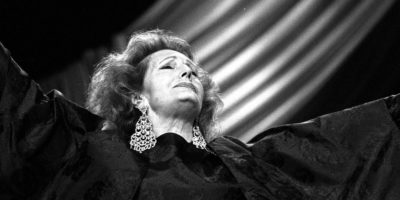15 Most Notorious Assassins in History
A malicious cast of individuals has left their marks on history’s obscure pages as the masterminds behind some of the most daring and significant deeds ever carried out. These are the assassins who carry concealed weapons, have political grudges, and espouse divisive views.
Their gruesome acts have echoed across history, changing fates, upending peace, and rewriting the histories of empires and countries. These 15 infamous people have transcended their lifetimes, leaving an enduring effect on the course of human events, from the terrifying assassination of Julius Caesar that altered ancient Rome to the enigmatic forces behind contemporary catastrophes like the JFK assassination and 9/11 attacks.
Their stories offer a terrifying glimpse into the intricate interplay of power, ideology, and human psychology. They serve as a sobering reminder that history’s most sinister places frequently bear the names of those who once attempted to change it through the deadly art of assassination.
1. Marcus Junius Brutus

Palazzo Massimo alle Terme, Public domain, via Wikimedia Commons
The name Brutus echoes through the hallways of ancient Rome as a sign of treason. Marcus Junius Brutus planned the assassination of Julius Caesar in 44 BC, a deadly deed that reverberated across history.
Brutus and his accomplices stabbed Caesar’s ambitions out of concern for a developing monarchy and a desire to protect the Roman Republic. The political stability of Rome was shaken by this horrible deed, which set off a series of events that led to the Roman Republic’s eventual emergence as the powerful Roman Empire.
The eerie legacy of Brutus serves as a sobering reminder of how one act of treason may drastically change the destiny of entire countries.
2. John Wilkes Booth

Alexander Gardner, Public domain, via Wikimedia Commons
John Wilkes Booth’s name will always be associated with the terrible death of Abraham Lincoln in the annals of American history. The 16th President was shot and killed by Booth in 1865, shocking the country that had just emerged from the Civil War.
Booth’s deed, motivated by political zeal and personal convictions, not only took Lincoln’s life but also put doubt on Reconstruction operations. The assassin’s acts led to a manhunt, court cases, and a lasting impact that influenced how the country saw itself as a unit in its battle.
The course of a country trying to heal its wounds was forever changed by Booth’s gunshot, leaving an irreparable mark on the annals of American history.
3. Gavrilo Princip

Unknown photographer, Public domain, via Wikimedia Commons
In 1914, Gavrilo Princip, a man whose name is synonymous with dramatic outcomes, lit the fuse that started World War I. He killed Austria’s Archduke Franz Ferdinand with a single gunshot, sparking a chain reaction of allegiances and wars.
Princip’s deeds redrawn boundaries claimed numerous lives, and ushered in a period of tremendous worldwide unrest. His bullets didn’t just damage a regal figure; they also shattered Europe’s tenuous peace, changing the course of history and demonstrating the devastating power of one person’s deeds on a grand scale.
4. Lee Harvey Oswald

Dallas Police; Warren Commission, Public domain, via Wikimedia Commons
Lee Harvey Oswald will always be associated with the sad events of November 22, 1963. Oswald’s alleged involvement in the death of President John F. Kennedy caused a whirlwind of rumors and doubt to envelop the country.
The reverberations of those terrible shootings in Dallas continue to this day, putting the nation’s faith in institutions to the test and igniting lingering rumors about a broader scheme.
Oswald’s enigmatic position in one of history’s most contentious episodes serves as a sobering reminder of how one person’s deeds may permanently alter the narrative of a country.
5. Yigal Amir

Gideon Markowiz / Photographer: Israel Press and Photo Agency (I.P.P.A.) / Dan Hadani collection, National Library of Israel / CC BY 4.0, CC BY 4.0, via Wikimedia Commons
Israeli Prime Minister Yitzhak Rabin was assassinated in 1995 by Yigal Amir, shockingly destabilizing the Middle East peace process. The expectations of peace between Israelis and Palestinians were dashed by Amir’s gunshots, which were motivated by political and ideological conflicts.
Rabin’s passing signaled a turning point and left the quest of peace in the area forever scarred. Amir’s violent deed not only took a leader’s life but also threw a fragile peace process off course, highlighting the frailty of diplomacy and the long-lasting effects of extremist activities on the world stage.
6. Charlotte Corday

Unidentified location, Public domain, via Wikimedia Commons
Charlotte Corday’s 1793 killing of Jean-Paul Marat stands as a dramatic act of individual rebellion against the turbulent backdrop of the French Revolution. Corday’s murderous deed was motivated by her belief that Marat was the cause of the revolution’s brutality.
Her efforts, meanwhile, unintentionally increased the fervor she was trying to put out. Corday’s dagger came to represent the difficulties involved in pursuing justice by murder.
It served as a warning that even when assassinations are carried out with the best of intentions, the results can be unforeseen and far-reaching, changing the course of history in ways that the assassins themselves could not have foreseen.
7. Grigori Rasputin
The murder of Grigori Rasputin in 1916 signaled the conclusion of a sinister story that had engulfed Russia’s imperial court. A gang of aristocrats poisoned and assassinated him due to his mysterious influence on the Romanovs and tales of his paranormal abilities.
Rasputin’s passing significantly weakened an already flimsy monarchy, hastening the Romanov dynasty’s end. This mystic’s demise serves as a chilling reminder of the turbulent years preceding the Russian Revolution.
His life and death continue to pique people’s interest and serve as an example of the strong concoction of authority, scheming, and superstition that may determine the course of empires.
8. Anwar Sadat

See page for author, Public domain, via Wikimedia Commons
The murder of Anwar Sadat in 1981 dealt a devastating setback to efforts to bring about peace in the Middle East. Sadat’s ideal of cooperation was thwarted by Islamic radicals who resisted his efforts as the Egyptian President who ventured to build a road towards concord with Israel.
His passing not only eliminated a voice for peace but also caused unease to spread throughout the area. The killing of Sadat highlights the ongoing conflict between development and radicalism in the pursuit of long-term peace and serves as a harsh reminder of the difficulties encountered by governments attempting to forge a rapprochement.
9. Mehmet Ali Ağca
The bold attempt on Pope John Paul II’s life by Mehmet Ali Aca in 1981 rocked the notion of security around the world. The ambiguity surrounding Aca’s motivations and ties served as a reminder of how susceptible even the most well-known international leaders are.
The Pope’s survival and later encounters with Aca served as vehicles for messages of repentance and reconciliation, demonstrating the superiority of charity over retaliation.
This murder attempt served as a reminder of how intertwined global events are, as well as the significant influence that one act of violence may have on diplomatic conversations and the parameters of forgiving others on a global scale.
10. Nathuram Godse

Indian Government work, Public domain, via Wikimedia Commons
Mahatma Gandhi’s 1948 murder by Nathuram Godse was a sad contradiction in India’s quest for independence. Gandhi’s murderer, Godse, was formerly a supporter of Gandhi’s nonviolent ideology before becoming one due to ideological opposition.
The route to Indian independence was clouded by this act of violence, which tarnished the reputation of a man who stood up for civil rights and peace.
Godse’s deed serves as a somber reminder of the difficulties of human conviction and the capacity for even the most fervent believers to tragically stray from their original objectives, casting a permanent stain on the story of a nation’s emancipation.
11. Jack the Ripper
The mysterious Jack the Ripper frightened a city and aroused intrigue around the world in 1888 London. The horrifying deaths of prostitutes showed signs of a terrifying manner, but the identity of the perpetrator is still a frightening mystery.
The lingering impact that Jack’s reign of terror left behind not only inspired crime fiction but also shed a ghoulish light on the seedy underbelly of Victorian society, leaving an imprint on both history and popular culture. Jack’s reign of terror brought to light socioeconomic disparities and the limitations of police enforcement.
12. Carlos the Jackal

AnonymousUnknown author, Public domain, via Wikimedia Commons
Ilich Ramrez Sánchez’s alter ego, Carlos the Jackal, became a representative of global terrorism in the 1970s and 1980s. He planned bombs, killings, and kidnappings to further his political views.
Carlos’s daring deeds attracted worldwide attention by demonstrating the power one person has to sabotage diplomatic ties and alter public views of security. His legacy serves as a terrifying reminder of the influence that a motivated and vicious man may have on the global stage, highlighting the effective combination of radicalism and media coverage in the modern day.
13. Osama bin Laden

English: Hamid Mir, CC BY-SA 3.0, via Wikimedia Commons
The devastating September 11 attacks were planned and carried out by Osama bin Laden, whose unprecedented act of terrorism changed the face of international security. History changed when the Pentagon and the World Trade Center towers were simultaneously hijacked and destroyed.
The War on Terror and other changes to international relations were brought about by Bin Laden’s activities, which caused a seismic shift in American foreign policy. His legacy serves as a grim reminder of the persistent menace of extremism and the significant impact that one terrorist attack may have on changing the geopolitical landscape and the course of nations.
14. Andrei Vyshinsky

RIA Novosti archive, image #7781 / G. Vail / CC-BY-SA 3.0, CC BY-SA 3.0, via Wikimedia Commons
During the Great Purge, Andrei Vyshinsky served as Stalin’s main prosecutor and was a chillingly effective executioner. Numerous Soviet officials were executed as a result of his staged show trials, removing potential challenges to Stalin’s power.
Vyshinsky’s involvement in the ruthless repression of opposition cemented his place in history’s most horrific episodes. His legacy is a somber reminder of the destructive effects of people who promote and carry out state-sanctioned murder, permanently tainting the pages of the turbulent history of the Soviet Union.
It also stands as a sad monument to the power of deception, terror, and unrestrained authority.
15. Balthasar Gerard
Prince William I of Orange and Count of Nassau was slain by a Frenchman named Balthasar Gerard. William played a significant role in the Dutch revolt against the Spanish throne in the Netherlands.
Gerard, a Catholic Frenchman who backed Phillip II, thought William had forsaken the Catholic faith and the monarch of Spain. On July 10, 1584, as William the Silent chatted with an elderly soldier who was seated before him in the palace’s hallways, the assassination took place.
When William placed his hand on the elderly captain’s bent head, Gérard sprung out of a nearby shadow. He pulled out his weapon and shot the prince twice. According to many historians, William of Orange was the first head of state in the world to be killed through the use of a handgun.
Planning a trip to Paris ? Get ready !
These are Amazon’s best-selling travel products that you may need for coming to Paris.
Bookstore
- The best travel book : Rick Steves – Paris 2023 – Learn more here
- Fodor’s Paris 2024 – Learn more here
Travel Gear
- Venture Pal Lightweight Backpack – Learn more here
- Samsonite Winfield 2 28″ Luggage – Learn more here
- Swig Savvy’s Stainless Steel Insulated Water Bottle – Learn more here
Check Amazon’s best-seller list for the most popular travel accessories. We sometimes read this list just to find out what new travel products people are buying.









